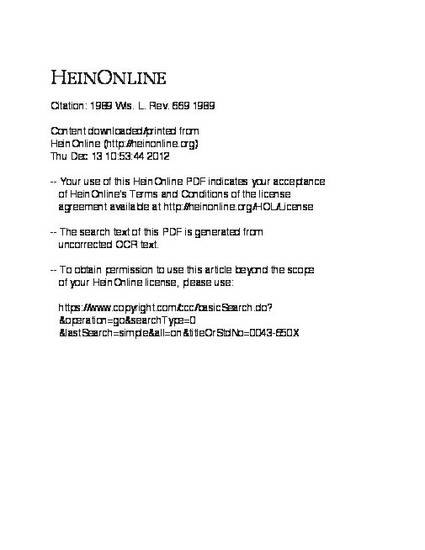
- Law and
- Legal History
A great deal of important legal historical scholarship is doctrinal in focus, its objective being to chart the history of substantive common law rules. In this Article, Professor Millon suggests that doctrinal legal history is based implicitly on the modern positivist theory of law as a system of state-endorsed rules designed to resolve disputes in a consistent, predictable manner. He questions the validity of efforts to write the history of the premodern common law from this theoretical point of view.
Focusing on pre-seventeenth century civil cases, he finds that trial procedure seems to have allowed or even encouraged juries to exercise broad discretion with respect to normative judgment as well as fact-finding. Further, no post-trial remedies existed to challenge verdicts contrary to common law substantive rules; the action of attaint, though by some scholars to have served that purpose, appears instead to have aimed solely at corrupt or otherwise dishonest verdicts. Accordingly, historians have yet to demonstrate that official substantive rules were supposed to serve the same function in the premodern system that they are supposed to serve in ours. To the contrary, the legitimacy of premodern legal decisions must have rested on grounds other than consistent official rule application. Professor Millon concludes that we need a better understanding of premodern legal theory before we can accurately write premodern legal history.

Copyright 1989 by The Board of Regents of the University of Wisconsin System; Reprinted by permission of the Wisconsin Law Review.